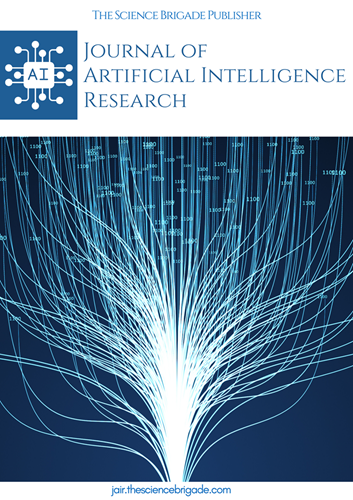Optimizing Software Performance: Methodologies, Best Practices, and Modern Tools for Effective Testing
Keywords:
Performance Testing, Software Quality Engineering, Load Testing, Stress Testing, Scalability Testing, Endurance Testing, Modern Testing Tools, Cloud-Based Testing, Containerization, Continuous Integration, Automated Testing, Real-User Monitoring, Performance Metrics, Testing Best Practices, Performance OptimizationAbstract
Performance testing is critical for ensuring the reliability, scalability, and responsiveness of software applications in today’s technology-driven environment. This article provides an in-depth review of various performance testing methodologies, including load, stress, scalability, and endurance testing, each addressing specific aspects of software performance. It emphasizes the importance of realistic test scenarios using synthetic and real user data and explores modern tools and technologies like cloud-based platforms, containerization, and continuous integration. The challenges of performance testing, such as simulating real-world user behavior and analyzing complex systems, are discussed, along with mitigation strategies that stress the importance of cross-functional collaboration and iterative refinement. This comprehensive review offers valuable insights for software practitioners and researchers to effectively implement performance testing strategies, ultimately contributing to the development of robust and high-performing software systems. Results: The performance testing tools were classified according to their relevance in the literature, highlighting the most commonly used tools, their supported input approaches, workload approaches, monitored metrics and logging strategies.
References
Victor Costa, Gustavo Girardon, Maicon Bernardino, Rodrigo Machado, Guilherme Legramante, Anibal Neto, Fábio Paulo Basso, and Elder de Macedo Rodrigues. 2020. Taxonomy of performance testing tools: a systematic literature review. In Proceedings of the 35th Annual ACM Symposium on Applied Computing (SAC '20). Association for Computing Machinery, New York, NY, USA, 1997–2004. https://doi.org/10.1145/3341105.3374006
Pargaonkar, S. (2020). A Review of Software Quality Models: A Comprehensive Analysis. Journal of Science & Technology, 1(1), 40–53. Retrieved from https://thesciencebrigade.com/jst/article/view/37
Pargaonkar, S. (2023). Enhancing Software Quality in Architecture Design: A Survey-Based Approach. International Journal of Scientific and Research Publications (IJSRP), 13(08).
Giovanni Denaro, Andrea Polini, and Wolfgang Emmerich. 2004. Early performance testing of distributed software applications. In Proceedings of the 4th international workshop on Software and performance (WOSP '04). Association for Computing Machinery, New York, NY, USA, 94–103. https://doi.org/10.1145/974044.974059
Pargaonkar, S. (2023). A comprehensive review of performance testing methodologies and best practices: software quality engineering. International Journal of Science and Research (IJSR), 12(8), 2008-2014.
Neely, A., Mills, J., Platts, K., Richards, H., Gregory, M., Bourne, M., & Kennerley, M. (2000). Performance measurement system design: developing and testing a process‐based approach. International journal of operations & production management, 20(10), 1119-1145.
Downloads
Published
How to Cite
Issue
Section
License

This work is licensed under a Creative Commons Attribution-NonCommercial-ShareAlike 4.0 International License.
License Terms
Ownership and Licensing:
Authors of this research paper submitted to the journal owned and operated by The Science Brigade Group retain the copyright of their work while granting the journal certain rights. Authors maintain ownership of the copyright and have granted the journal a right of first publication. Simultaneously, authors agreed to license their research papers under the Creative Commons Attribution-NonCommercial-ShareAlike 4.0 International (CC BY-NC-SA 4.0) License.
License Permissions:
Under the CC BY-NC-SA 4.0 License, others are permitted to share and adapt the work, as long as proper attribution is given to the authors and acknowledgement is made of the initial publication in the Journal. This license allows for the broad dissemination and utilization of research papers.
Additional Distribution Arrangements:
Authors are free to enter into separate contractual arrangements for the non-exclusive distribution of the journal's published version of the work. This may include posting the work to institutional repositories, publishing it in journals or books, or other forms of dissemination. In such cases, authors are requested to acknowledge the initial publication of the work in this Journal.
Online Posting:
Authors are encouraged to share their work online, including in institutional repositories, disciplinary repositories, or on their personal websites. This permission applies both prior to and during the submission process to the Journal. Online sharing enhances the visibility and accessibility of the research papers.
Responsibility and Liability:
Authors are responsible for ensuring that their research papers do not infringe upon the copyright, privacy, or other rights of any third party. The Science Brigade Publishers disclaim any liability or responsibility for any copyright infringement or violation of third-party rights in the research papers.




